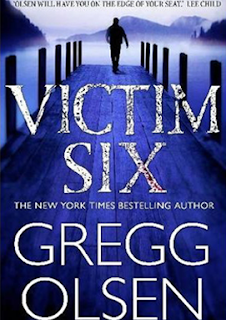Jennifer
debuted in the world of published books with what would become the Bigtime
books, a paranormal romance series set in fictional Bigtime, N.Y. The author
likens the series to “female-centered comic books without the art.” The
Elemental Assassin series takes place in the Southern metropolis of Ashland, a
community rife with giants, dwarves, vampires, and elementals – including
assassin and restaurant owner Gin Blanco, with the power to control stone and ice,
and a love of sharp objects. Both of these series are for the over-eighteen
reader.
For
the young adult (YA) reader, Jennifer developed the Mythos Academy urban
fantasy series. The stories focus on seventeen-year-old gypsy Gwen Frost, who
has the gift of psychometry, and her education at the Mythos Academy, a school
for descendants of ancient warrior socities.
“Crimson
Frost”, the fourth book in the Mythos Academy series is Jennifer’s latest
release. The story features a potential relationship between Gwen and handsome
Logan Quinn. The fact Logan’s father would just as soon see Gwen become a soon
forgotten memory of life might be a bit of a stumbling block. Landing in jail
on their first date for allegedly helping the sadistic Loki escape from
prison…. Sure beats dinner and a movie, but how do you plan a second date from
behind bars?
Jennifer
employs an easy-to-read style of writing in all of her work. Her characters are
well-drawn and interesting, and the plots original with just enough twist to
keep readers turning the page.
Q)
What was the inspiration behind the Mythos Academy series?
A)
I’ve always enjoyed mythology and all the stories of the gods, goddesses,
warriors, and creatures battling each other and going on these epic quests. I
remember watching the old Clash of the Titans movie whenever we would have
movie days in school, and I read things like The Iliad and The Odyssey for
class assignments over the years.
One
day, I thought it would be cool to write my own mythology story with my own
characters and magic, put my own spin on things, and tell the story that I
wanted to tell. So that’s what I did, and that was sort of the beginning of my
Mythos Academy series. So far, I’m having a blast writing the books.
Q)
The assassin Gin Blanco began as a killer for hire, but seems to be evolving
into more of a vigilante or seeker of vengeance. Why did you decide to change
her motivation for killing?
A) I’ve
always enjoyed reading about assassin characters in fantasy literature because
they can be everything from cold to calculating to crazy. It just seems like
there are so many different stories that you can tell with assassin characters.
With
Gin Blanco, I wanted to start out with a character who was cold, reserved, and
closed off, even from her friends and family. But as my Elemental Assassin
series has progressed, Gin has opened herself up more to her friends and
family, and that’s one of the things that has changed her focus a bit. Gin is
still an assassin, but now she’s more of an assassin-with-a-heart-of-gold who
helps folks who can’t help themselves.
Q)
Fantasy stories require worldbuilding - the construction of the locale,
environment, demographics, society the characters interact in. You have stated
that you sometimes find authors spend too much time on worldbuilding and not
enough on the plot. What do you think the proper balance is?
A) Worldbuilding
is a big part of any fantasy book. I think one of the fun things about writing
fantasy books is coming up with a town, city, castle, or whatever and then
dreaming up all of the magic, creatures, and more that live in that place and
how they interact with each other.
However,
plot is equally important. You can have a really creative magic world/system,
but without strong characters and a strong plot, it’s really just an empty
town, city, or castle. It’s important to strike a good balance between your
worldbuilding and the characters who drive your plots forward and hopefully
keep readers engaged in their adventures.
Q)
With three active series, are you planning to branch out into other stories in
other worlds? If so, what do you have in mind?
A)
I have a couple of ideas for new fantasy books/characters/series that I would
like to explore. I think it would be cool to maybe write a YA series with more
of a fairy tale or epic fantasy feel. I’d also like to write in some different
genres and maybe try my hand at a spy thriller, a heist book, or maybe even a
western someday. I have more ideas than I could ever possibly have time to
write.
Q)
Any parting thoughts for fans and potential new readers?
A)
Folks can visit my website at www.jenniferestep.com
for more information on my books and to read excerpts. Folks can also follow me
on Twitter at @Jennifer_Estep or check out my author pages on Facebook and
Goodreads.
Thanks
for taking the time to interview me. I appreciate it. Happy reading, everyone!
DA Kentner is an
award-winning author www.kevad.net

















